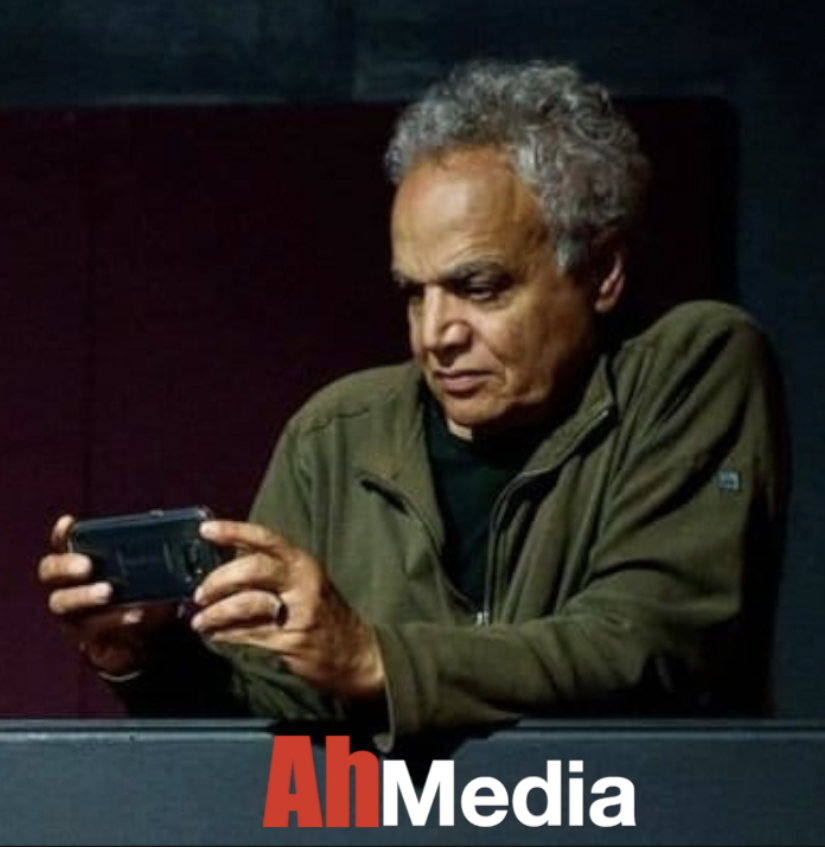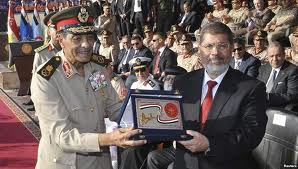Rep. Michele Bachmann, no stranger to outlandish claims, once said: “It appears that there has been deep penetration in the halls of our United States government” by the Muslim Brotherhood.
At the time, a member of the Brotherhood responded to the Minnesota congresswoman’s rant by quipping: “We can’t even penetrate our own government.”
He was right; they couldn’t. But they tried, too hastily and too fast, to take control of strategic positions and institutions in Egypt — justice, education, culture, security, tourism — replacing former dictator Hosni Mubarak’s corrupt “deep state” with a Brotherhood shallow state.
Incompetent and parochial, what the opposition called the “brotherization of Egypt” under Mohammed Morsi brought more protesters out into the streets after just one year than Mubarak brought forth after 30 years of dictatorship.
Why did so many Egyptians suddenly want to oust the first civilian elected president in their long history? It isn’t so much what Morsi did or didn’t do — it is what Morsi represents. Morsi was accused of all sorts of failures that he actually inherited from Mubarak’s 30-year legacy — a ruined economy and a bankrupt country, where Egyptians suffer daily blackouts and long lines for gas — along with absurd accusations about selling the Suez Canal to Qatar, and Sinai to Hamas.
But the real downfall of Morsi and the Brotherhood was an image problem that the more Westernized, secular, liberal elite in Egypt feared. This was magnified and propagated by the privately owned sellout media and keyboard worriers of fBook and twitter. As AL Jazeera’s document showed the trail of US funding of the anti-Morsi groups. Morsi for them represents everything they hate about themselves and their traditional matriarchal society.
As one activist at Tahrir tweeted: “Egyptians are the only people on earth [who will] put their lives on the line in Tahrir, but will be afraid to tell their parents where they are going.”
It is ironic that those in the liberal secular elite in Egypt share Bachmann’s Islamophoic view. With their fascination toward everything coming out of the West, they hated what Morsi embodied — the traditional, the parochial, the too-religious. This Westernization of the Egyptian secular elites has history and roots dating to when the Europeans invaded and occupied this part of the word at the turn of the last century. Nobody trusted the majority — a majority made up of uneducated religious traditionalists, who look and talk like Morsi — to be able to govern themselves or produce their own leaders.
Even Gamal Abdel Nasser, the champion of the poor, didn’t trust his own constituents. He relied on the technocrats — the educated, Westernized elite — to carry on his failed populist vision.
For the elites, Morsi and the Brotherhood simply represent those poor, provincial, traditional Egyptians.
The Jan. 25 revolution — more than two years ago — was about getting rid of a rotten dictatorship that snuffed out the dignity of the Egyptian people. Everyone was there to make sure Mubarak would be gone, including the Muslim Brotherhood.
The June 30 “Tamaroud” rebellion, led by the young Westernized elites, is more of a cultural revolution. The elites saw Morsi’s perceived brotherization of society as an assault on their identity and their secular values. And Morsi didn’t bring any hope of solving the country’s problems. His traditional (but non-Brotherhood) constituency suffered from his incompetent leadership, not so much from the brotherization of their country. Poor Egyptians are religious, but they still need to live to practice their religion.
Those millions of poor Egyptians sided with anti-Morsi secular elites. And after all was said and done, 33 million protesters were in the streets all over Egypt. Those in the military saw the writing on the wall; they were waiting. They moved in to reclaim Egypt, a country they had lost a year earlier.
Now the question is what kind of Egypt we are going to have — will it be one big enough to make room for both the liberal secular Westernized crowd and the more traditional religious segments?
From what we have seen so far, the military is taking advantage of this shocking event, as the Bush administration did with 9/11 to launch his neoconservative aggressive policy. Under the rubric of the war on terrorism, the Egyptian military is rounding up Brotherhood leaders, accusing them of all sort of things, shutting down religious TV channels and kicking Al Jazeera out. But it is not stopping the liberal media’s campaign of demonizing and nullifying the Brotherhood, who are accused now of being religious fascists, Nazis and un-Egyptian. Dr. Al Baradie the ayatollah of Egyptian secular liberals explained on BBC, “.. if we didn’t take down Morsi, Egypt would have been a religious fascist state … we were between a rock (ironically it sounded like “Iraq”, and hard place.” he added.
The military now has a free hand in Egypt, shooting protesters, suspending the constitution and appointing a 77-year-old banker, Hazem El-Beblawi, (he was my last boss in Egypt, used to call me the “American”) to head a new government. Now, the winners along with the military are celebrating in Tahrir again, and the old chant “the army and the people are one hand” is back from the euphoric days after toppling Mubarak.
Someone once said: “The best day after getting rid of a dictator is the first day.”

